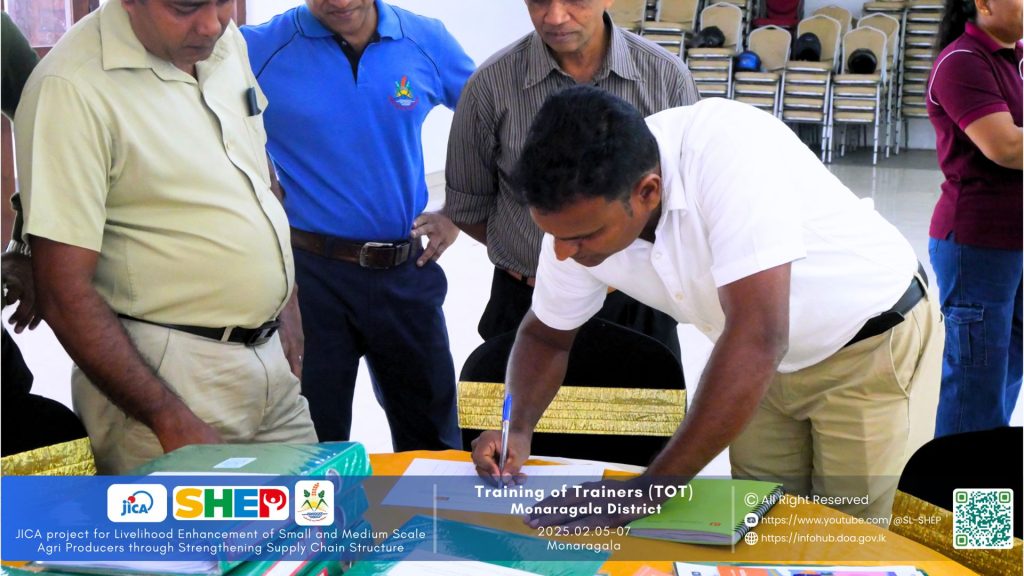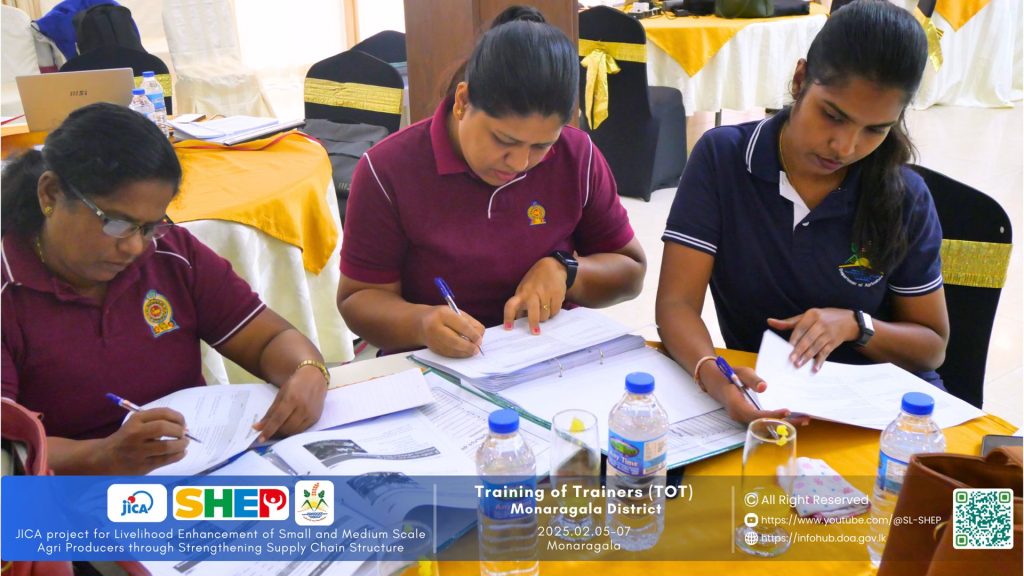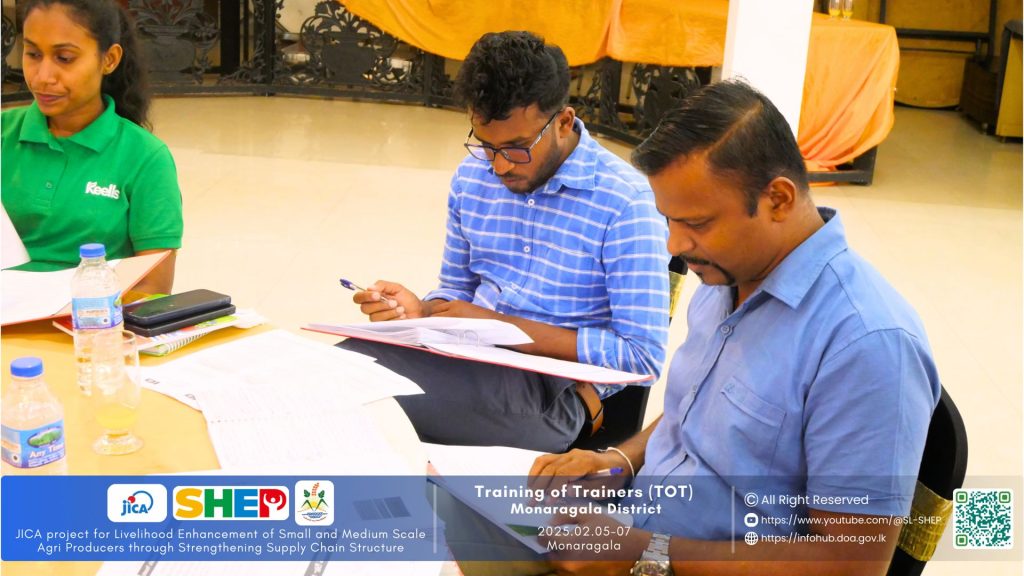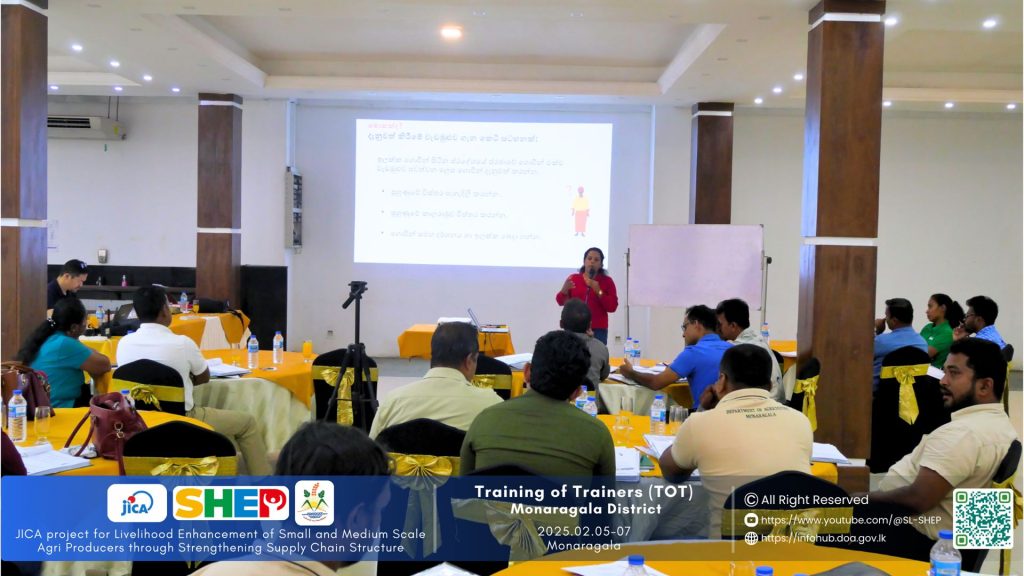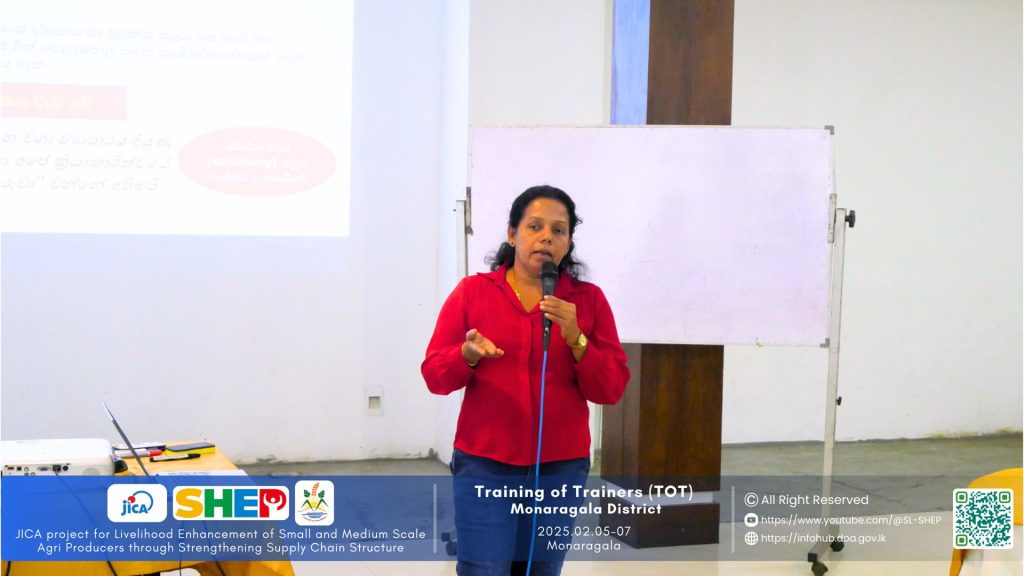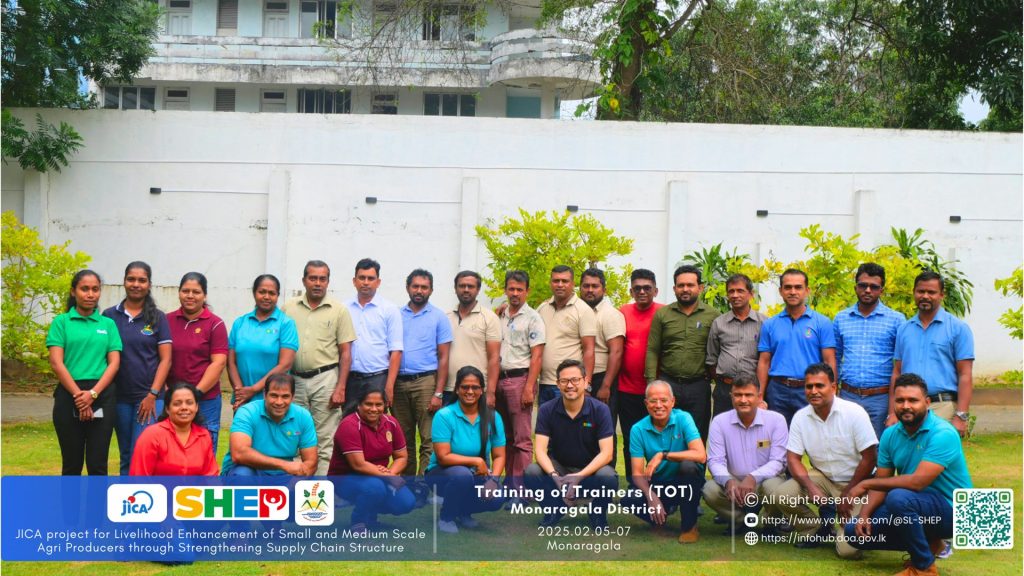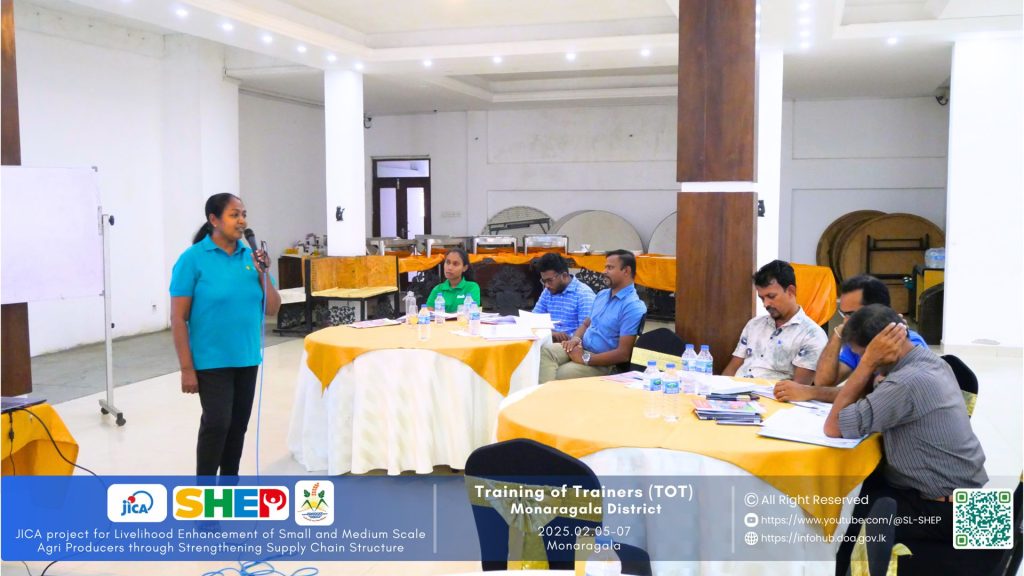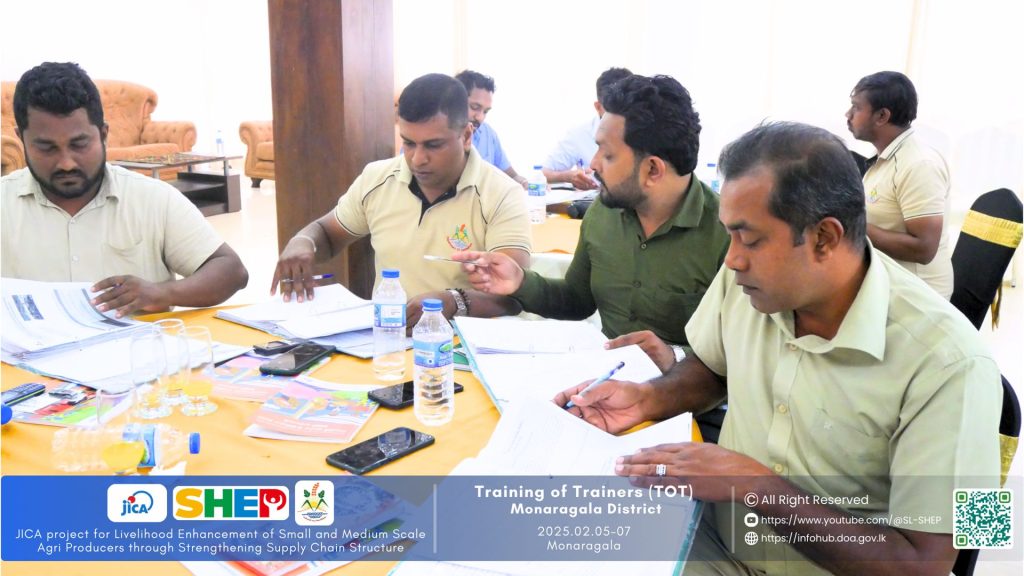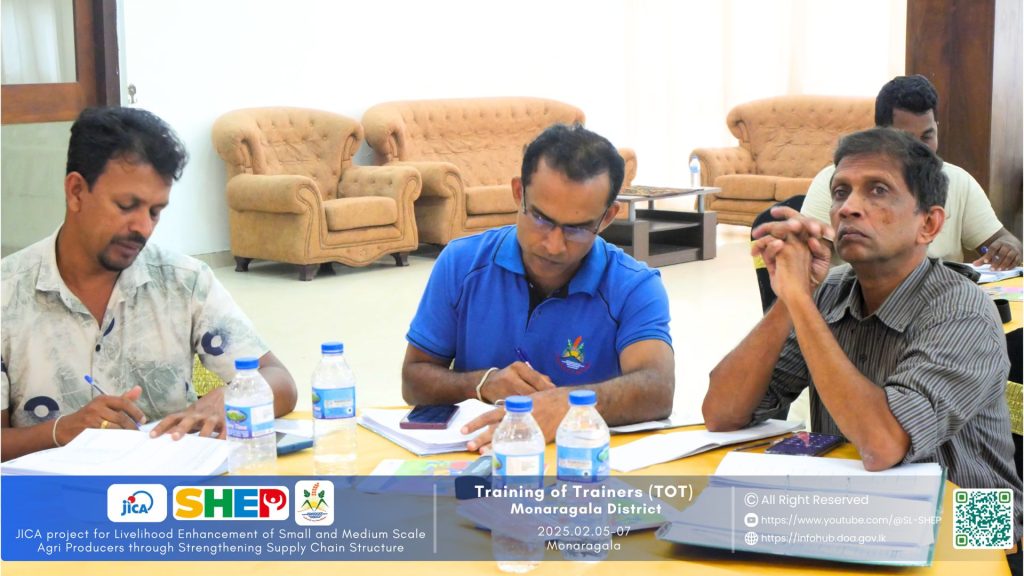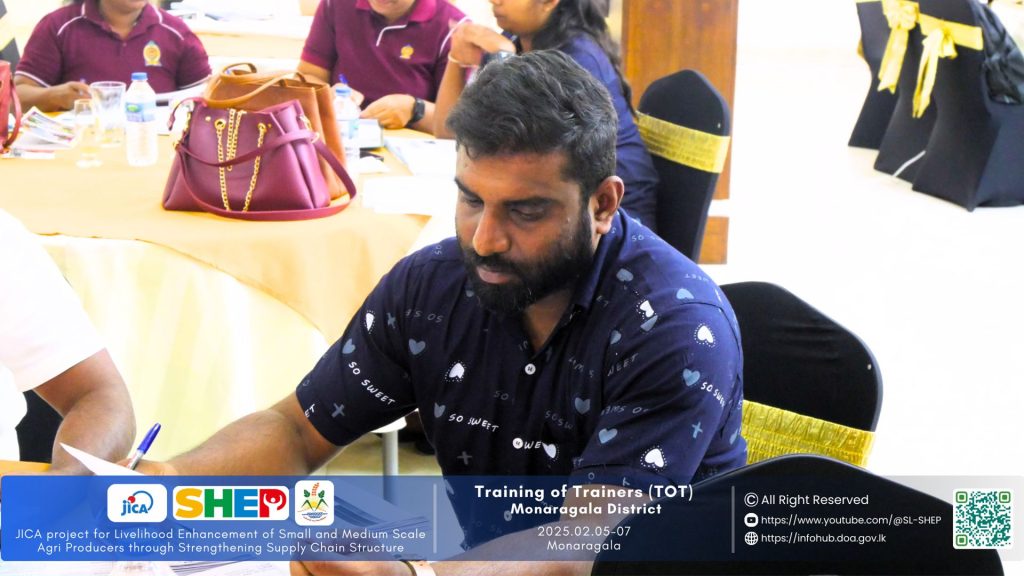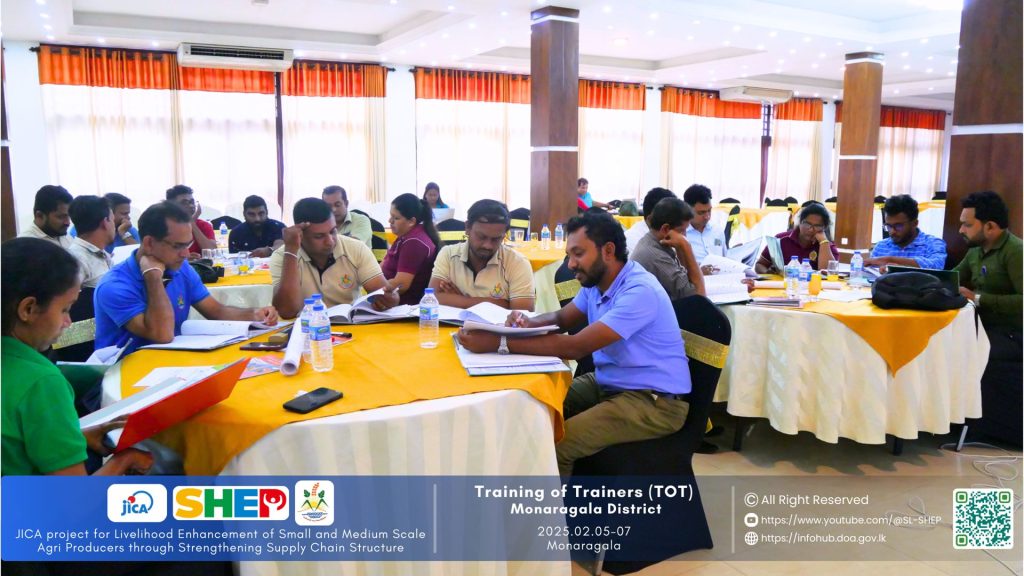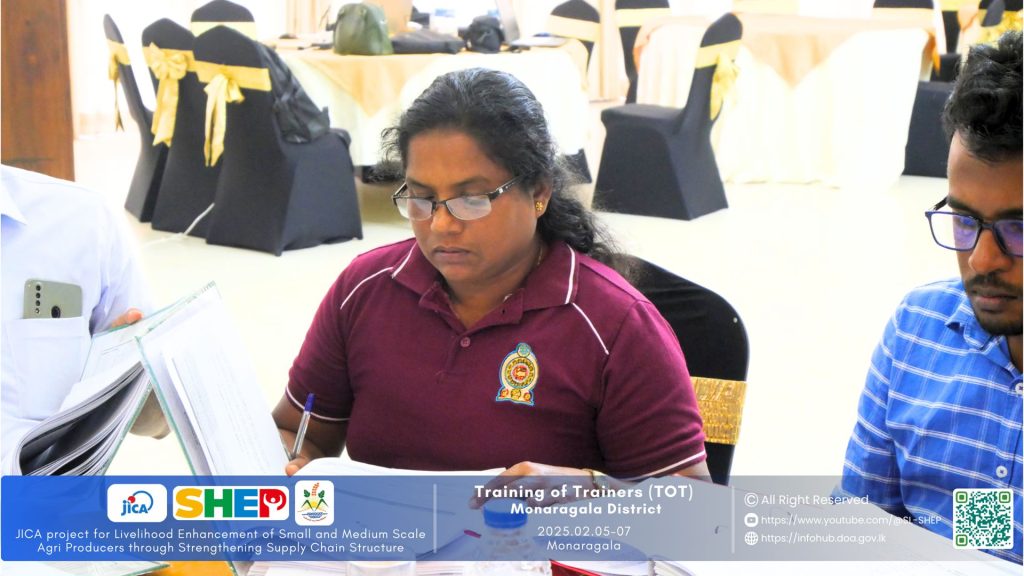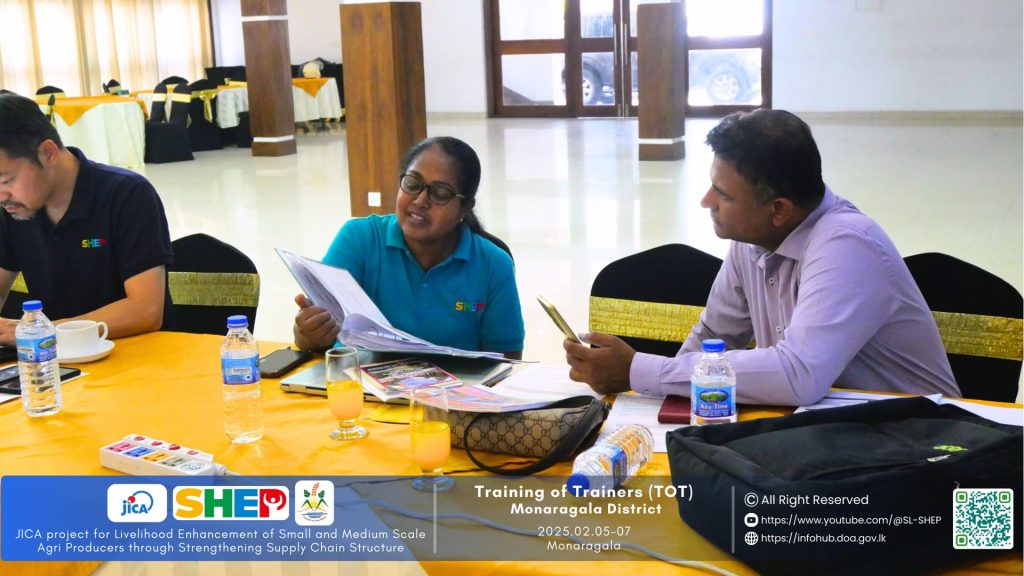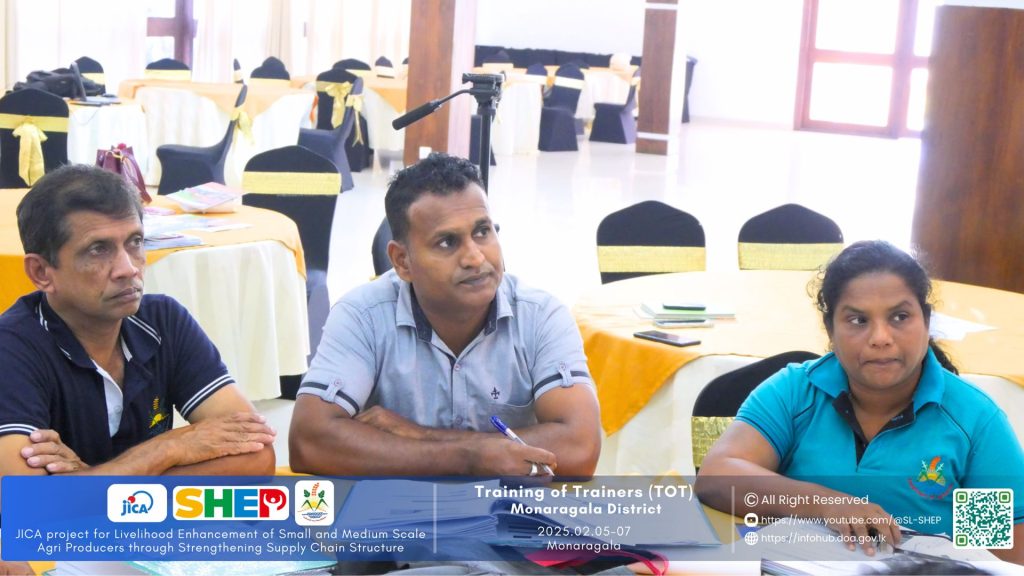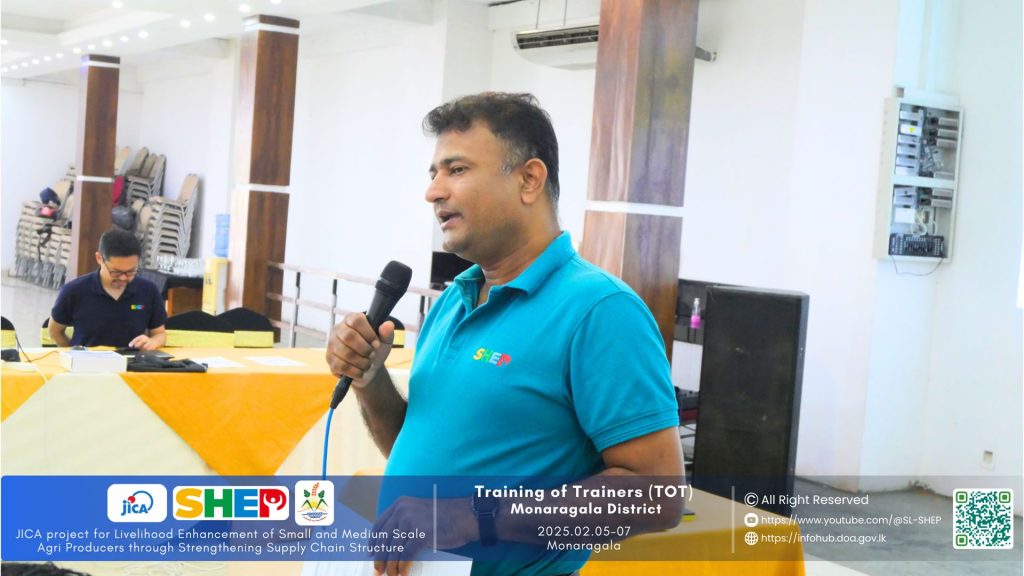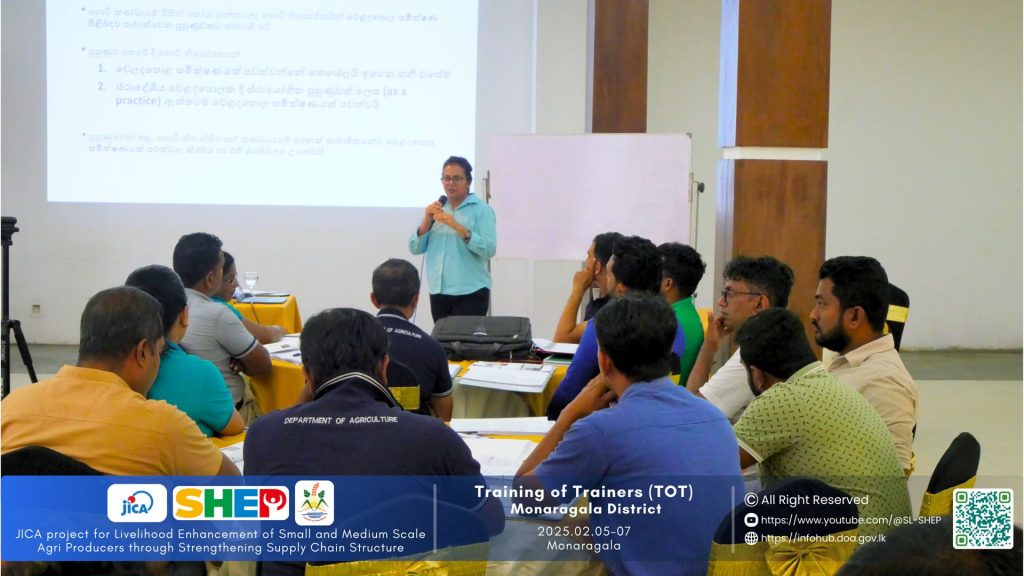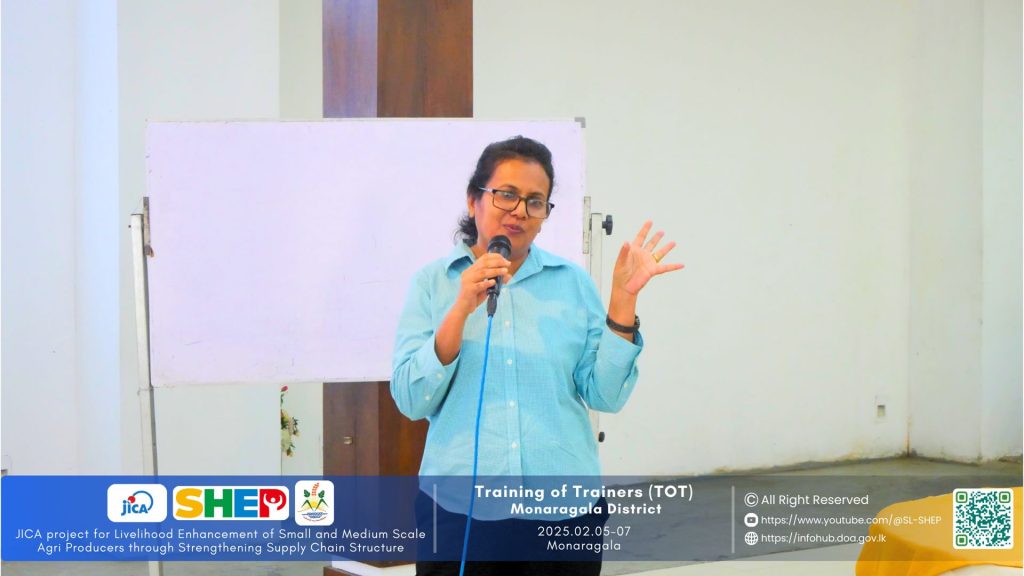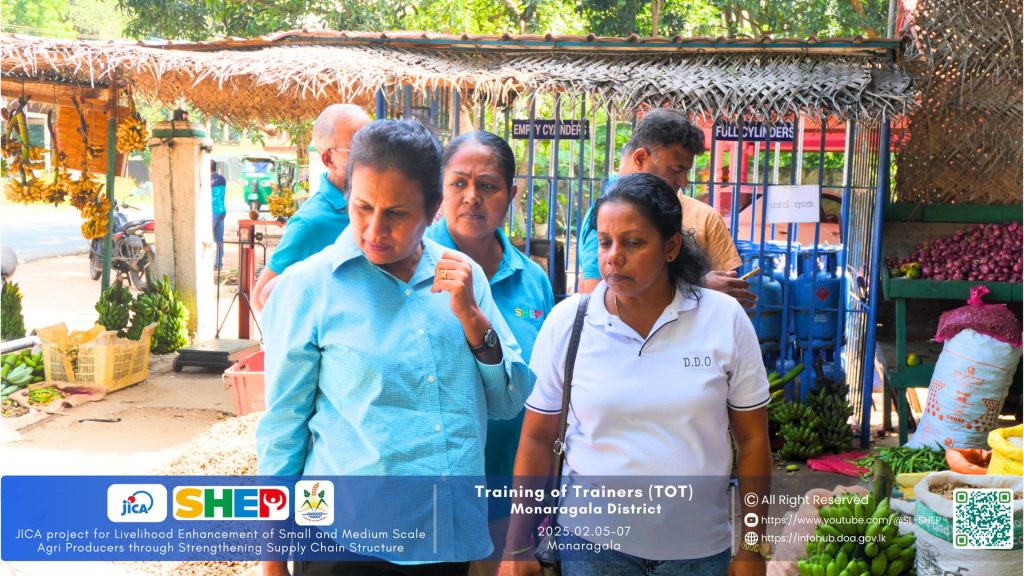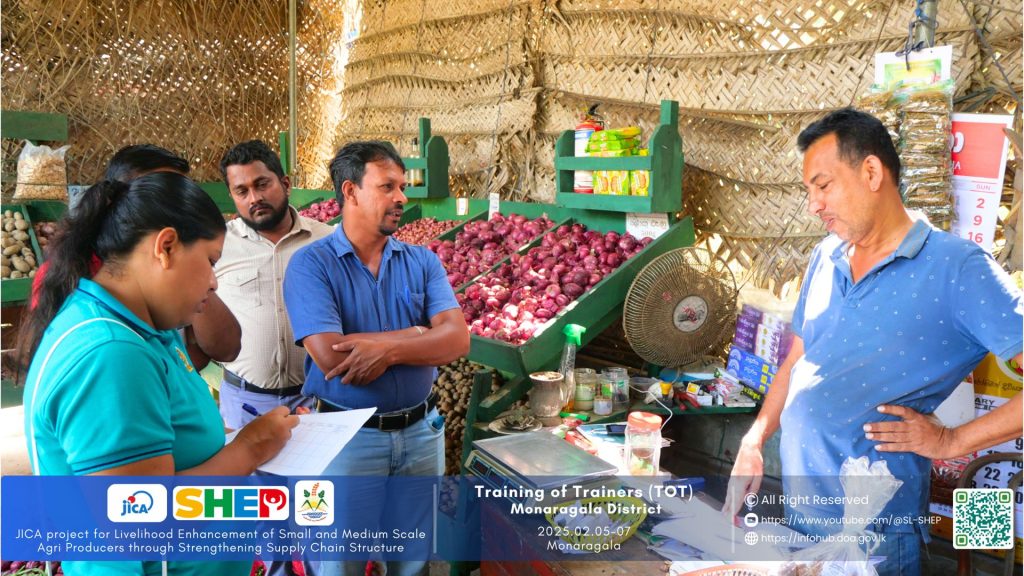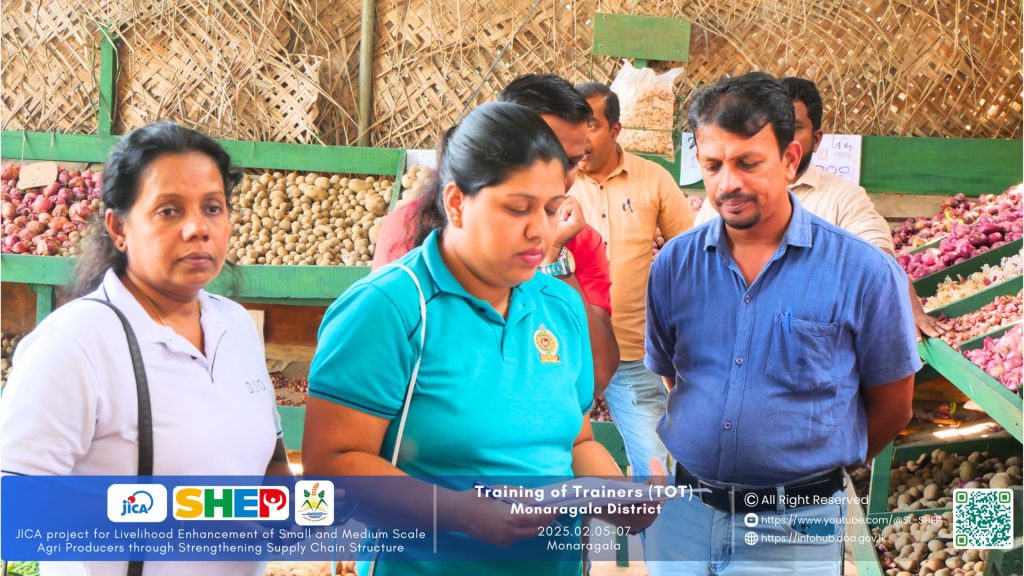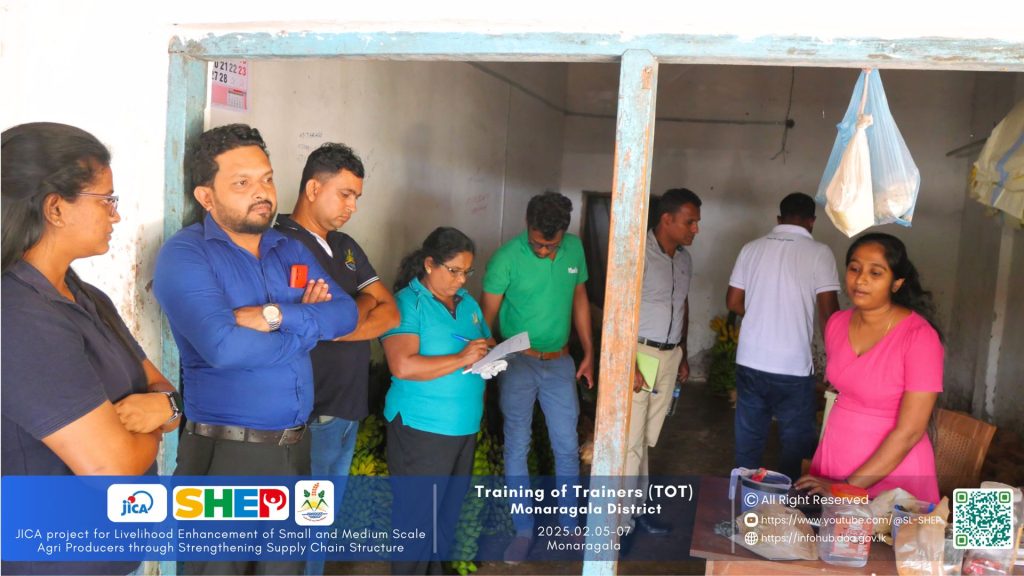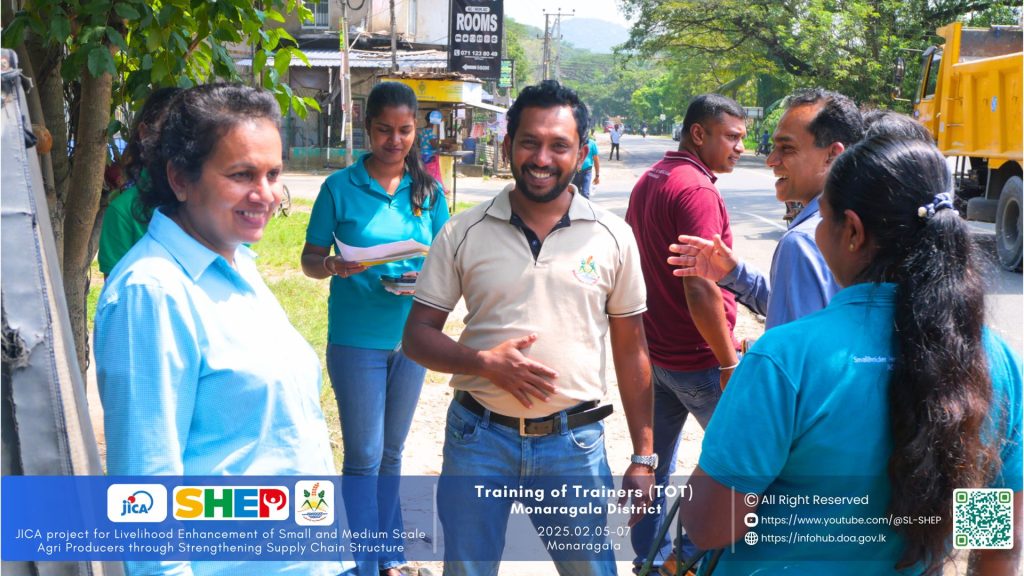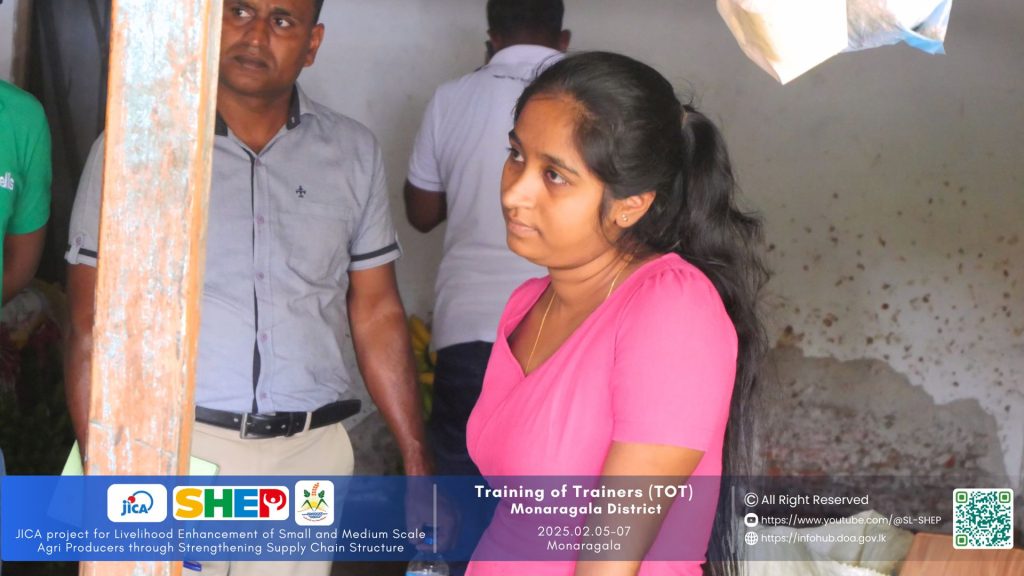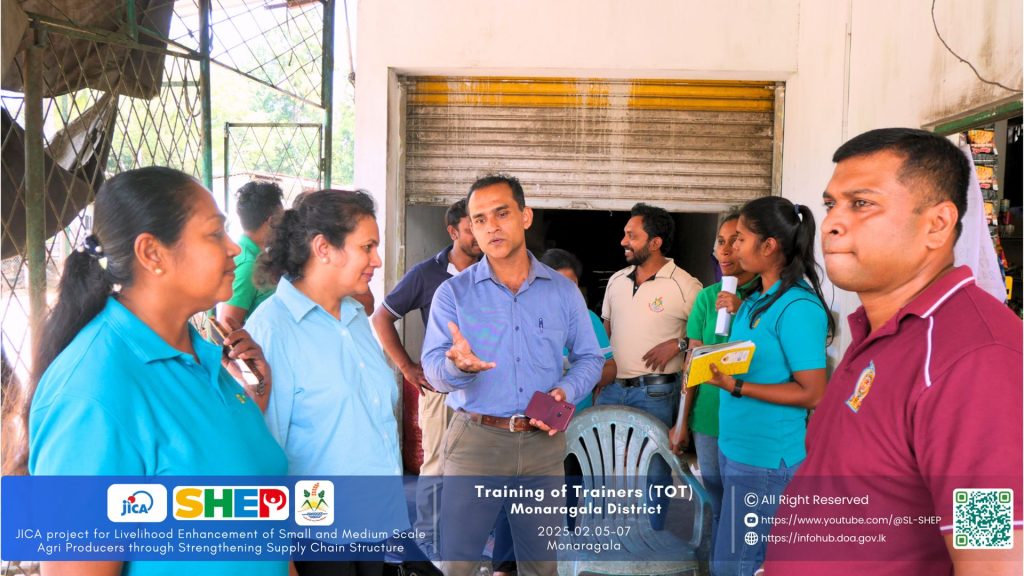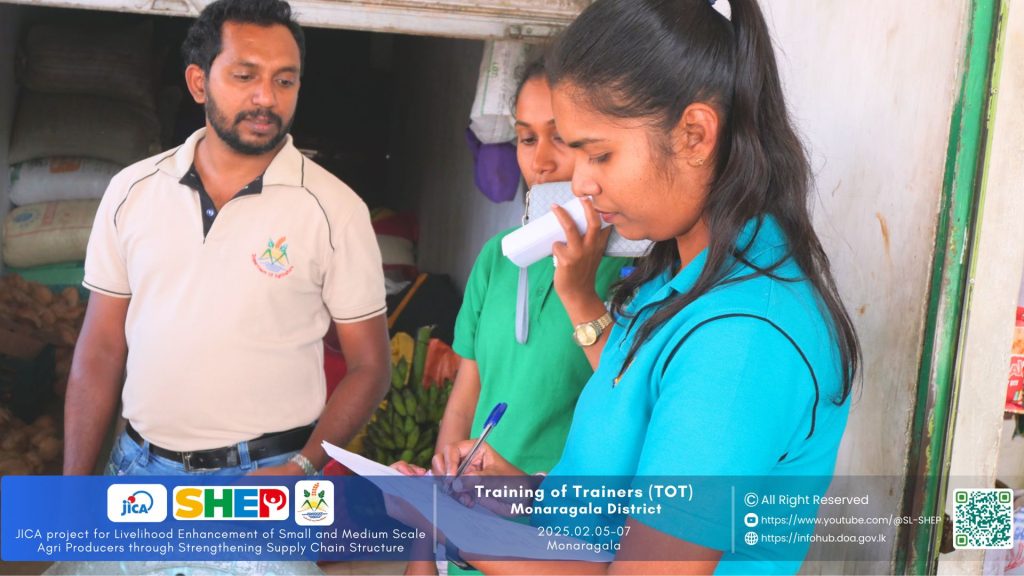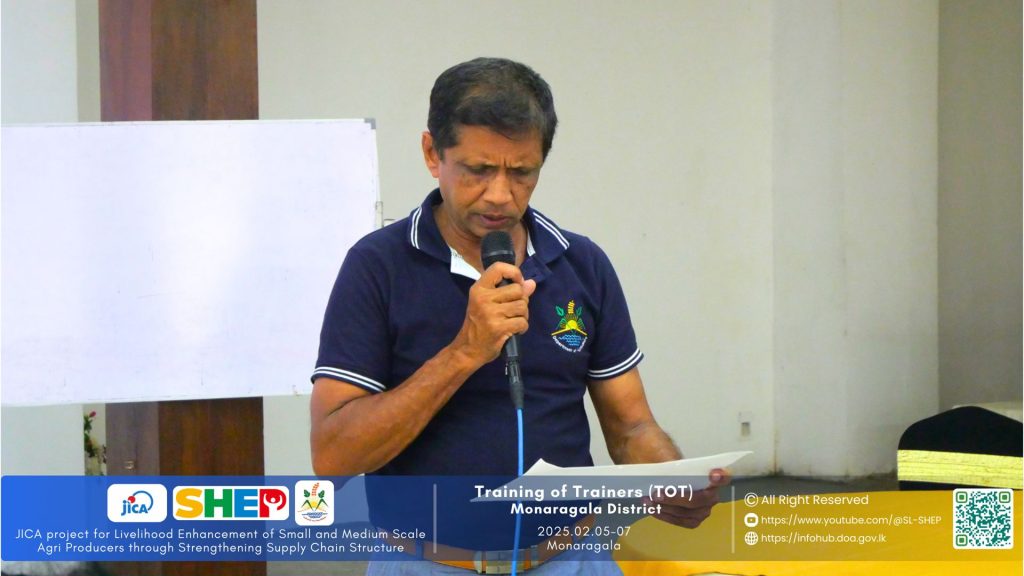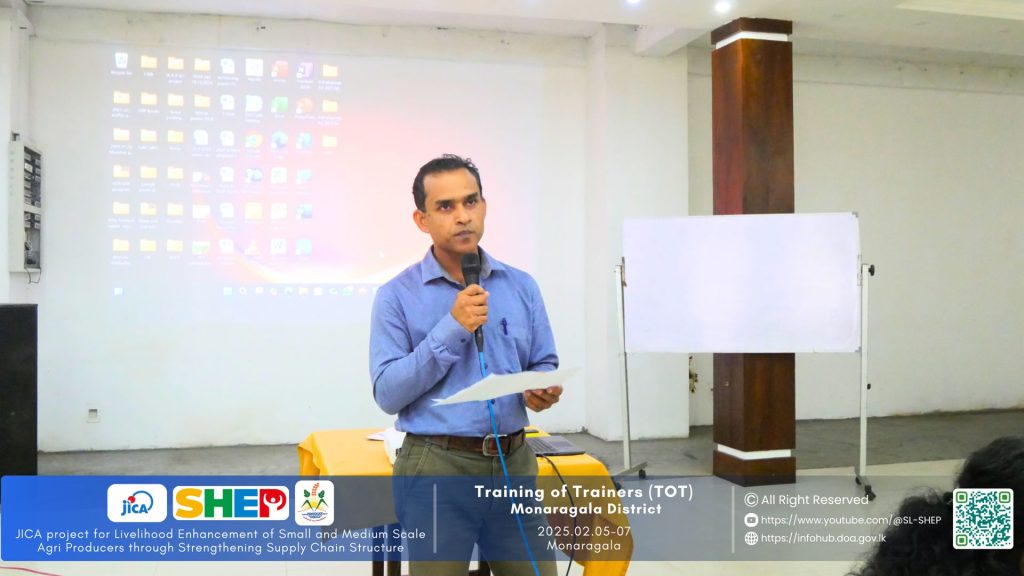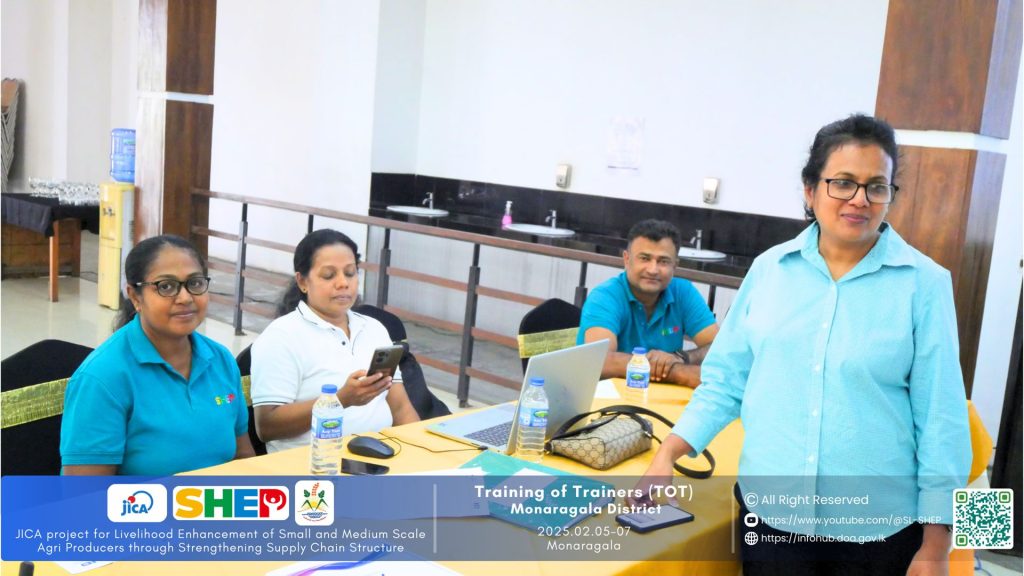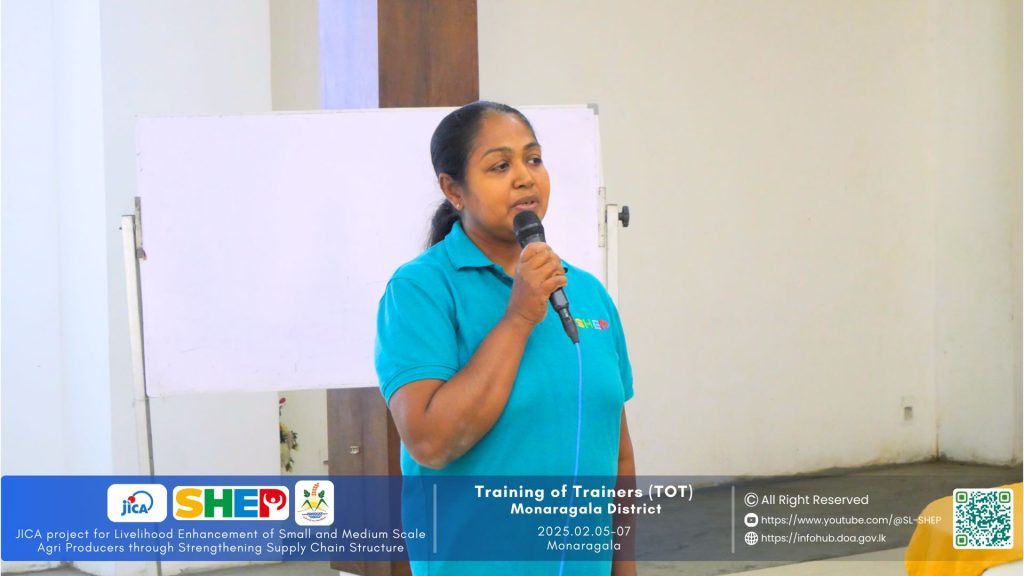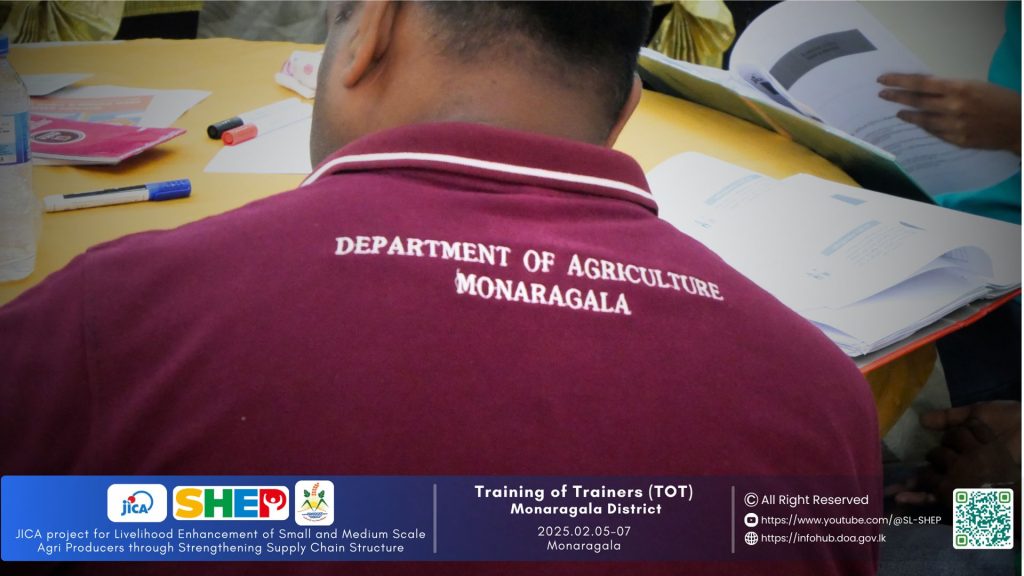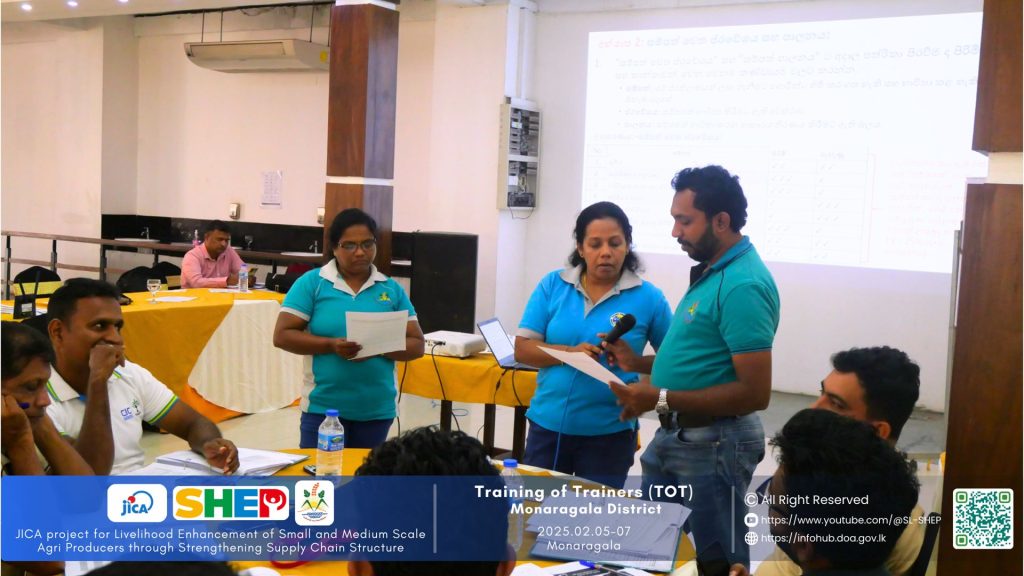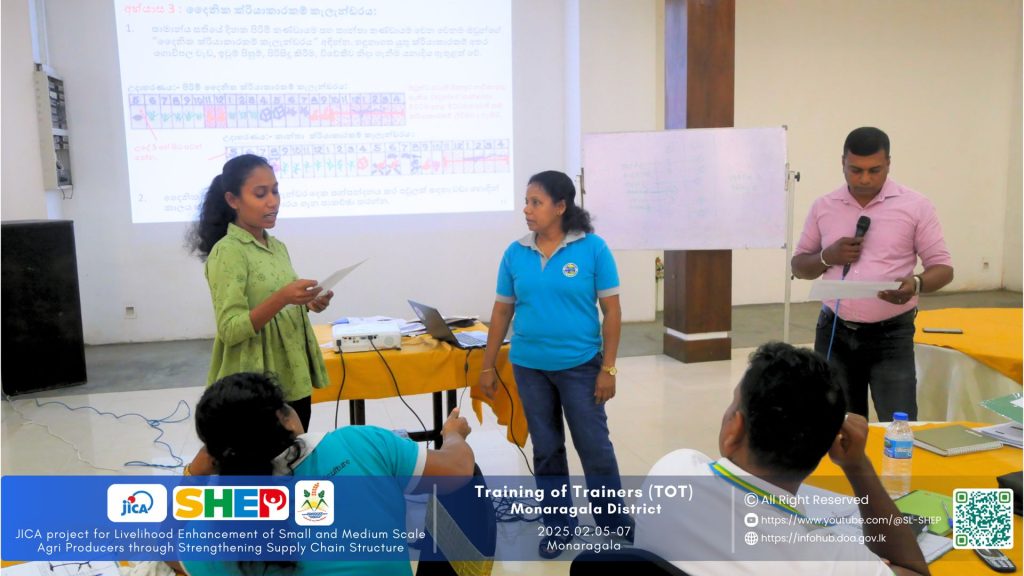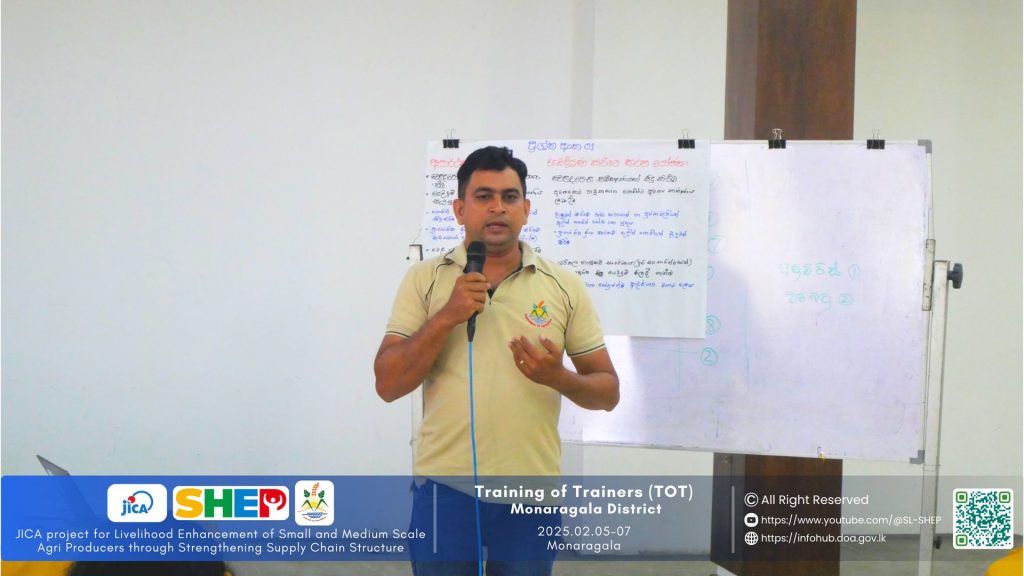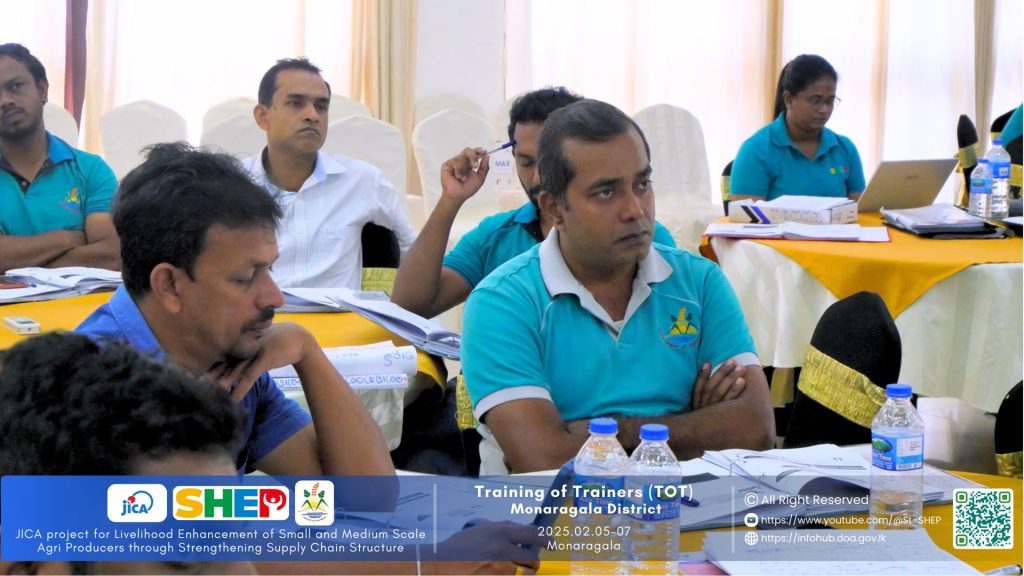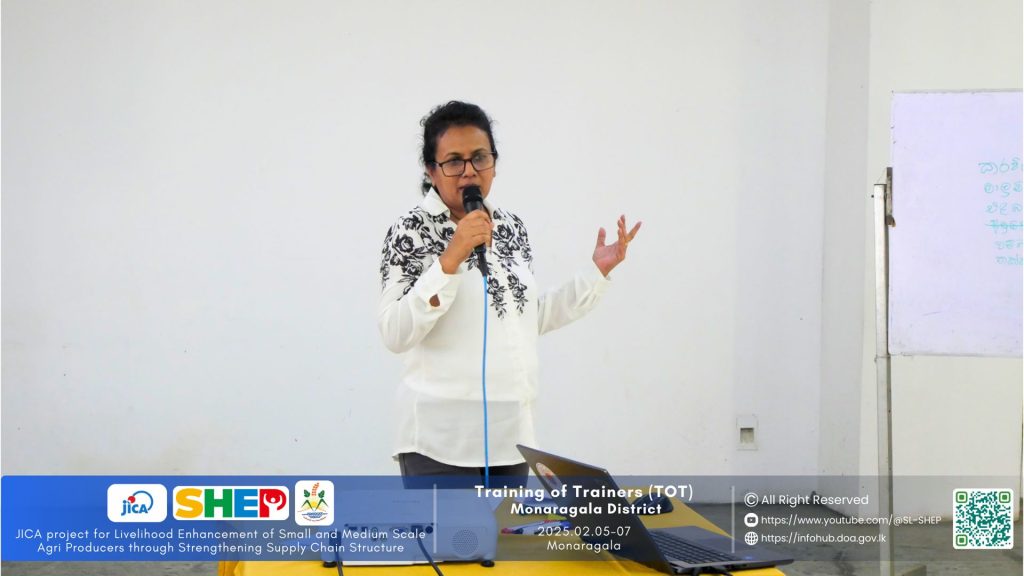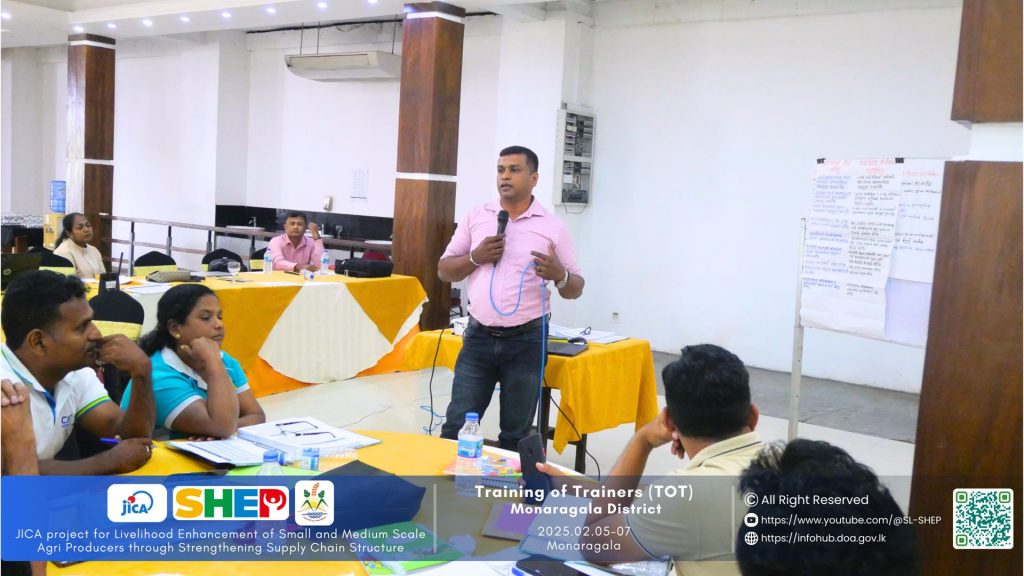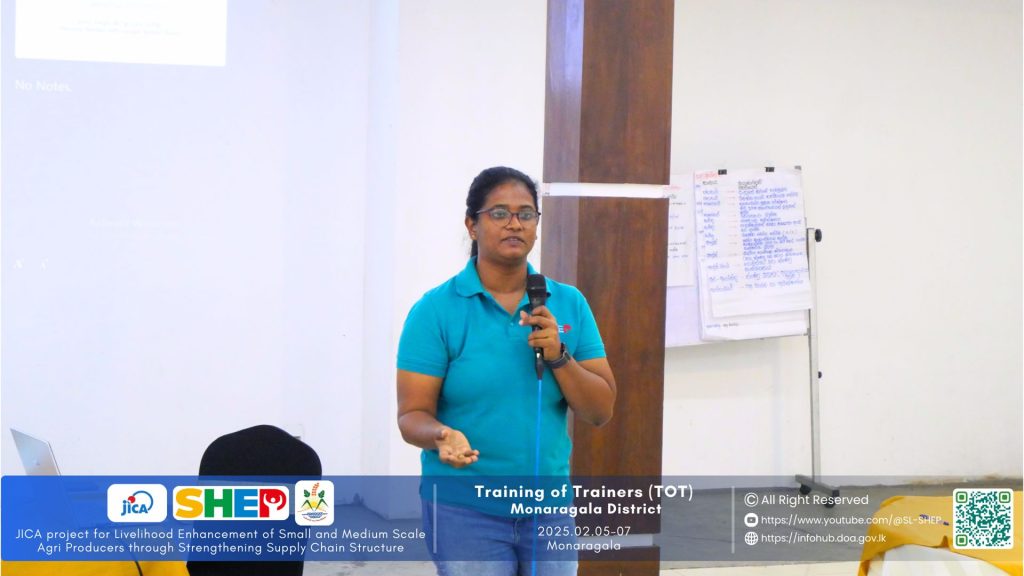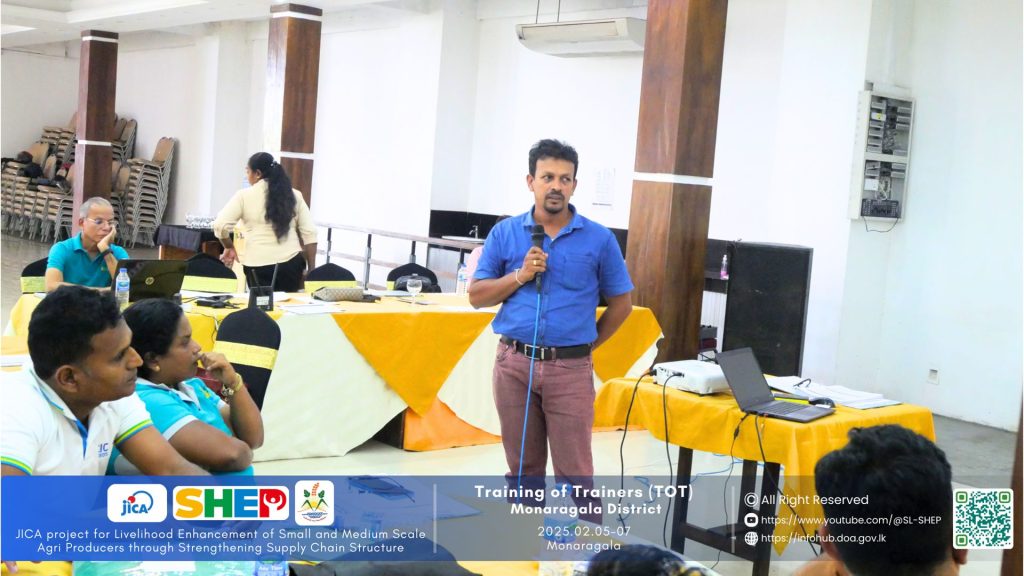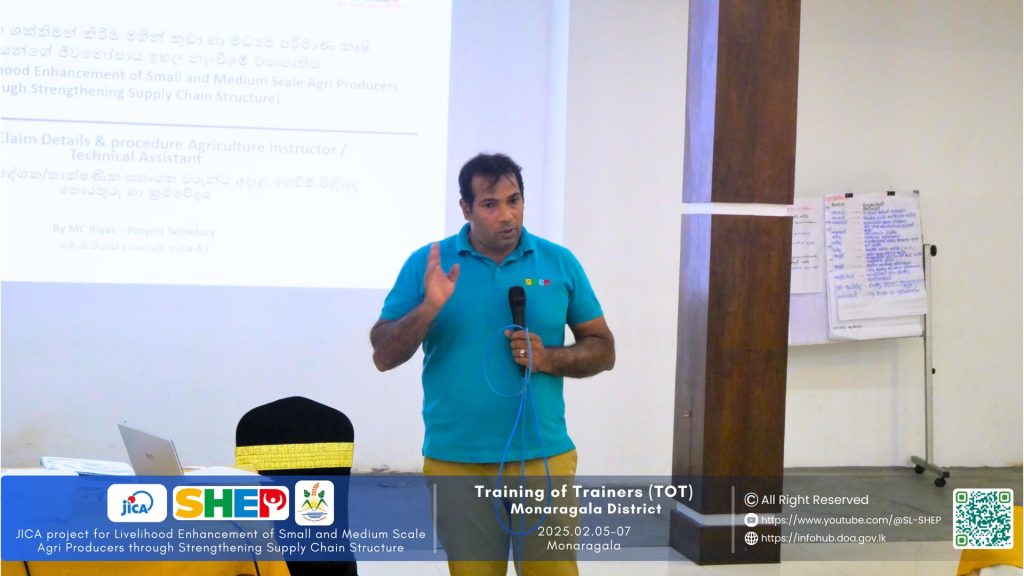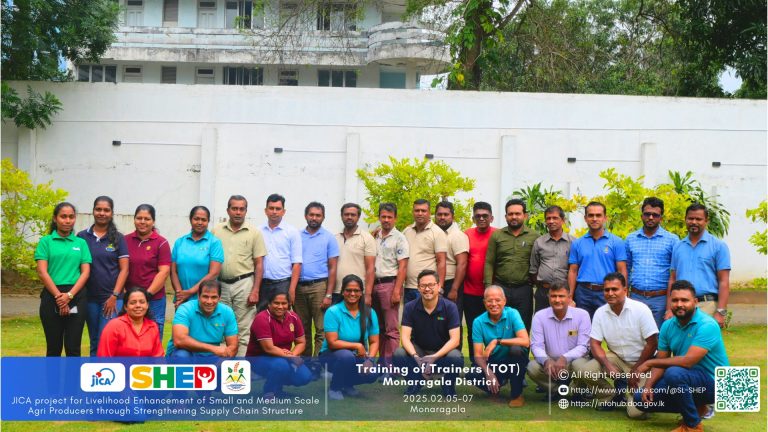The Smallholder Horticulture Empowerment and Promotion (SHEP) approach continues to make a significant impact on Sri Lankan agriculture. Over the past two years (2023 and 2024), the SHEP approach has been successfully introduced to 37 farmer groups across five districts: Monaragala, Matale, Nuwara Eliya, Anuradhapura, and Badulla. As a result, these farmers have transformed their agricultural mindset from “Grow & Sell” to “Grow to Sell”, effectively increasing their income and market responsiveness.
Building on this success, the SHEP approach is set to expand to new farmer groups in Matale and Monaragala in 2025. To facilitate this expansion, a Training of Trainers (ToT) program was successfully conducted from February 5th to 7th, 2025, in Monaragala. The second session is scheduled to take place in Matale from February 20th to 22nd, 2025.
These training sessions aim to equip field officers with the necessary knowledge and skills to guide farmers in adopting the SHEP approach. For this three-day training, not only were Agriculture Instructors and Technical Assistants from the Department of Agriculture present, but officers from private sector companies such as CIC, Keells, and Dahamsa International Pvt Ltd also participated.
The three-day training program was designed to provide a comprehensive, step-by-step understanding of the SHEP approach, guiding participants through each critical stage of its implementation. On the first day, the focus was on familiarizing participants with the SHEP approach, starting with a sensitization program, followed by guidance on how to conduct a baseline survey and organize a stakeholder forum. These activities laid the foundation for understanding the market-oriented agricultural model.
The second day concentrated on conducting a market survey, where participants were taught the methodology for performing a market survey and gained hands-on experience by conducting a preliminary market survey in a nearby local market. This exercise helped them understand how to assess market demand, select target crops, and align production strategies.
On the final day, the training shifted to in-field training, where participants learned how to develop a training schedule based on the specific needs of farmers, ensuring the training was practical and aligned with the challenges farmers faced. The day also included training on gender awareness training and sharing success stories from Sri Lanka’s SHEP experience, further emphasizing how the SHEP approach has been successfully applied.
The ToT program successfully achieved its goal of creating a well-informed team of field officers ready to bring the SHEP approach to farmers in the new farmer groups. The participants expressed enthusiasm and a deeper understanding of market-oriented agriculture, ensuring the continued success of SHEP’s expansion. With this initiative, we are confident that more farmers will benefit from SHEP approach and increased market opportunities in the coming years.
Read more about: The Four Essential Steps of SHEP approach
